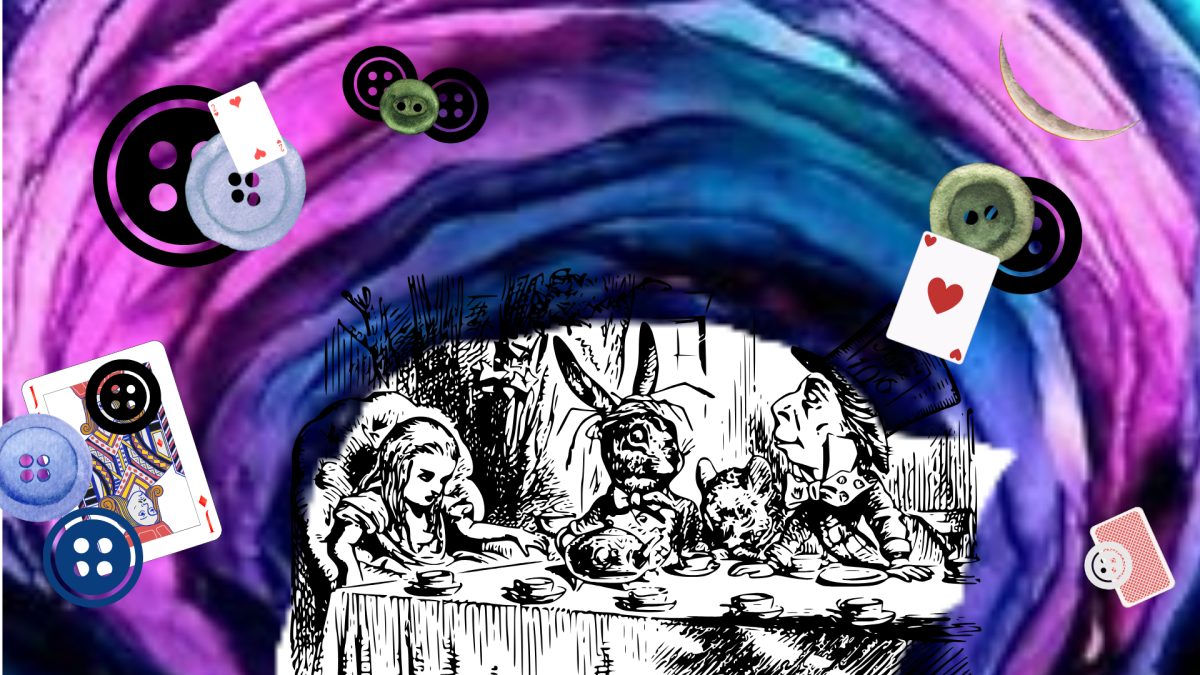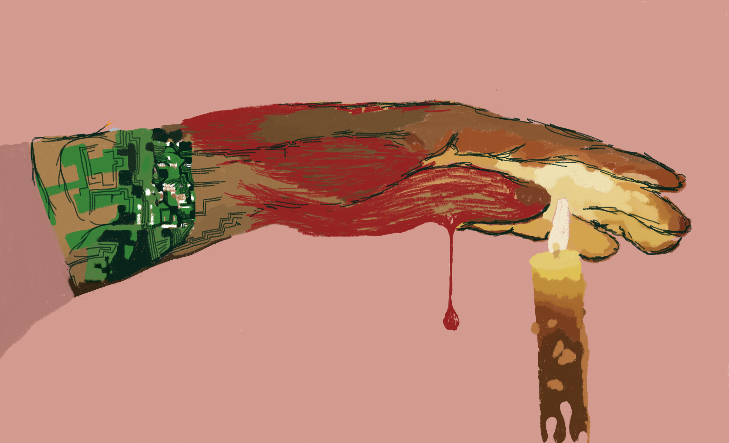Editor’s Note: This article contains references to eating disorders and self-harm.
Pablo Larraín’s “Spencer” is a “fable of true tragedy” of the late Princess Diana’s tumultuous Christmas 1991. The film stars Kristen Stewart, who Assistant Culture Editor Myra Bari called “one of the most unexpected castings this year” in her October film preview. “Spencer” was screened at Visit Chapel Hill’s Film Fest 919 on Oct. 24 at Silverspot Cinema and The Drive-In at Carraway Village before it hits wide theatrical release Nov. 5.
This film deals with the princess’s mental state, notably her struggles with eating disorders and self-harm. Unlike other depictions of Diana, these are taken to truly grotesque delusions. These parts of the film are undoubtedly the most upsetting but the most effective and filmically interesting. There’s one scene at a Christmas Eve dinner I can’t stand to spoil, but it’s unquestionably my favorite part of the film. This film stretches the imagination of what this Christmas was really like for Diana, but effectively demonstrates her hectic state.
You can’t have a biopic about a ‘90s princess’s Christmas in Sandringham House without excellent costuming. Although iconic Diana ‘fits like the revenge dress or her bike shorts aren’t featured, clothes are an integral part of the story and visually serve as another insight into the princess’s mindset. There are also few one-to-one looks lifted from real life; costume designer Jacqueline Durran opted for recreating the feeling and spirit of her clothes. This act of adapting sentiment and ideas rather than true life is present in just about every aspect of this film. Durran won Academy Awards for her work on Joe Wright’s “Anna Karenina” (2012) and Greta Gerwig’s “Little Women” (2019), so award consideration is more than possible for “Spencer” as well.
From the trailer alone, I could tell this film would have compelling cinematography, and director of photography Claire Mathon delivered. Mathon contrasted still shots from menacing angles and hand-held sequences perfectly emphasized Diana’s perspective in these moments. Mathon did the cinematography for both Céline Sciamma’s “Portrait of a Lady on Fire” and this year’s “Petite Maman,” which also screened at Film Fest 919.
Jonny Greenwood’s score is great, but at times felt tonally wrong. I appreciated the jazz inspiration, but it was occasionally distracting. Greenwood also composed the score for Jane Campion’s critically acclaimed “Power of the Dog,” premiering in a limited run on Nov 17., and on Netflix and in wide release Dec. 1, which could mean a big awards year for him.
Supporting roles in this film are small but strong. Timothy Spall, Jack Farthing, Sean Harris and Sally Hawkins are all deeply in service of Stewart’s performance, but are all distinct in their own ways. Hawkins as Diana’s dresser, despite a relatively short screen time, excels in every scene with the sweet nature also seen in “The Shape of Water” and the Paddington movies. Jack Nielen and Freddie Spry as Princes William and Harry, respectively, each stand out as promising young performers and give much-needed levity to the film.
Stewart is stunning. In her first couple of scenes as the royal, it’s jarring to see a well-known actress in the role of someone so high-profile, but by the end, she melted into the role of Diana. Stewart’s struts through Sandringham House as well as the caring looks towards those she trusts in this film are phenomenal and ground her performance. In her most manic sequences, Stewart is still controlled and precise.
However, I don’t think Stewart would be able to do this without the work of the costuming and hair and makeup departments. Stewart has the perfect feathered bangs, soft makeup and fashion to emulate the real Diana and they elevate the performance to another level.
As for the future of this film come awards season, I’m unsure. The most obvious and nearly secured nominations are for Stewart’s performance, especially with her depiction of a real person, which is much adored by awards voters. Costuming and set design could also see nods; Diana was a bit of a fashion icon and grand sets are always loved. But for now, bet on Stewart over anything else.
My biggest issue with this film was the subtleness, or lack thereof, in its themes. Steven Knight, the writer of “Spencer,” has some fairly heavy-handed allusions and motifs throughout the film. The first few times they are mentioned by the film, they’re fairly effective. But at a certain point, I understood what Knight was going for in his script, and he just kept having to unnecessarily hold the audience’s hand through his historical allusions and motifs.
Those who closely follow the royal family may hate this film, and I don’t care; I think you’re weird anyway. There are definitely historical inaccuracies in this film, which is why Larraín opts for the designation of “fable” rather than biopic. Biopics can also get a bit lost in telling every detail of a story instead of the emotional beats. I am not a fan of traditional biopics and was a fan of the historically inaccurate choices made in “Spencer.”
In any case, it would be a bit boring to have a completely historically accurate film, and the inaccuracies chosen by the filmmakers clearly heighten the themes and tone of the film. If the complete accuracy of an adaptation is so important it ruins a film for you, it might not be worth seeing adaptations. Enjoy “The Crown” all you want, I’m going to watch an inaccurate and grotesque royal Christmas movie with the girl from “Twilight.”
“Spencer” hits wide release in theaters Nov. 5. Find out more information about Film Fest 919 here. Also, support the International Alliance of Theatrical Stage Employees (IATSE)’s fight for better film set conditions and mourn those lost by cutting corners like Halyna Hutchins.
If you or someone you know is struggling with self-harm or an eating disorder, seek help from a medical or psychological professional.
NC State Student Health offers nutrition counseling for those with eating disorders and disordered eating behavior. Appointments can be made via the HealthyPack portal or by calling 919-515-2563.
The NC State Counseling Center also has resources and workshops for those engaging in behaviors like self-harm. If you are experiencing a mental health emergency, call the Counseling Center at 919-515-2423. For a life-threatening emergency, call 911.














